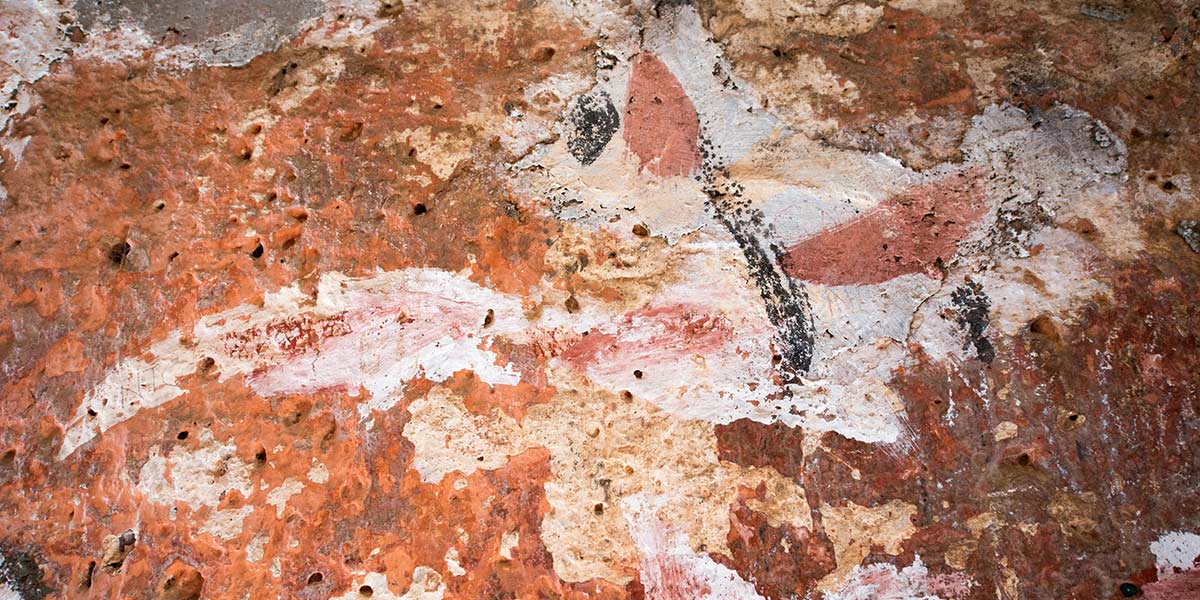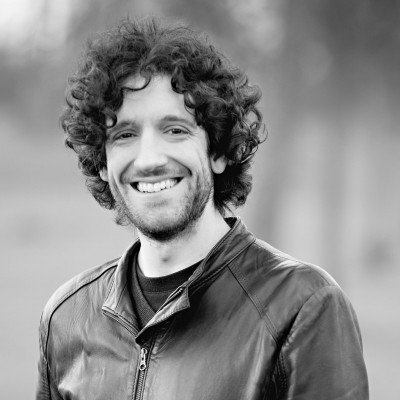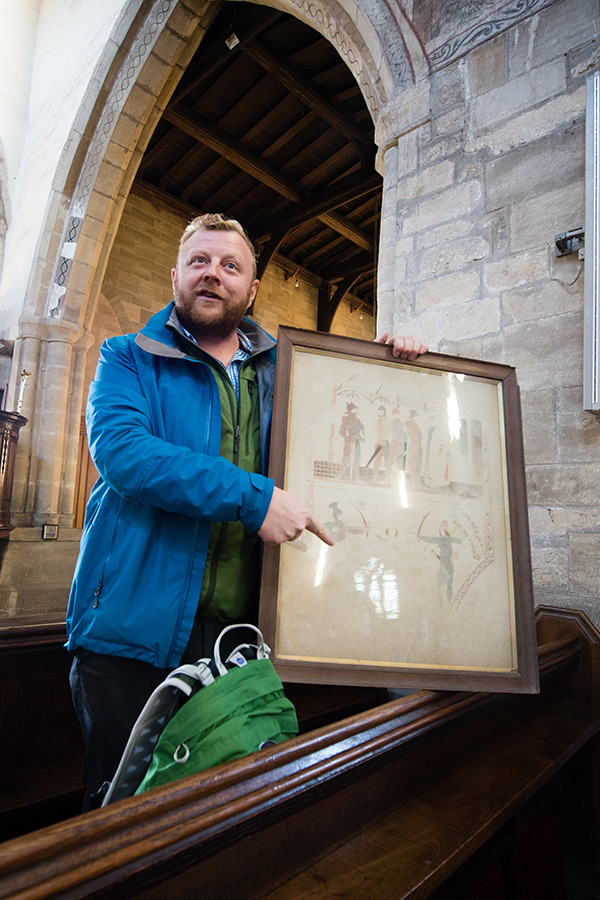View semester dates

BSc (Hons) Archaeology
Analyse our ancient past with modern technology
Year of entry: 2026/27
View semester dates
6th in the UK
=25th in the world
=2nd in the Russell Group
Advances in science mean we can discover more about the history of humankind than ever before.
BSc Archaeology allows you to explore the past and its people from a scientific perspective. Study a range of topics, from new scientific techniques in archaeological fieldwork to the analysis of human and animal bones. You can follow your interests in any time period, from the Palaeolithic to the 21st century. You'll develop archaeological skills through combined hands-on learning and small group teaching.
Our department is world-renowned for the advanced study of archaeology. We’re friendly and welcoming, meaning you'll get to know your lecturers, and they'll get to know you. You'll have so many opportunities to get involved. Join the Archaeology Society to working abroad on a research project. We have bespoke facilities on campus.
Accreditation
This course is accredited by the Chartered Institute for Archaeologists (CIfA), the leading professional body representing archaeologists working in the UK and overseas. Accreditation recognises the value of knowledge of working practices across the sector. It provides you with the opportunity to join CIfA to support your professional development.

I love archaeology because it combines history and practical skills. The location, facilities and staff make York the perfect place to study it! You can try everything and see what you are interested in while building a broad foundation of knowledge.
Course content
Our five undergraduate courses all have a common first year, so it's easy to change between them.
We emphasise flexibility - there's very little restriction on the modules you can choose to study. You'll complete a dissertation at the end of Year 3, allowing you to explore a topic that you find interesting in depth.
Year 1
Core modules
In your first year, your modules will cover:
- Prehistory to the Present
- Artefacts and Materials
- Archaeological Theory
- Introduction to Archaeological Science
- Discovering Archaeology
- Exploring Archaeology
You'll also take part in an excavation. This will give you hands-on experience in all aspects of assessing, collecting and analysing primary excavation data. It is a unique opportunity to be part of a really exciting phase of a research project.
It is taught during the academic year, so you won't be required to find an excavation placement during the summer vacation. If you are interested in taking part in further excavations during the vacation, we can help you find volunteering and paid opportunities to do further excavations - sometimes abroad!
Academic integrity module
In addition to the above you will also need to complete our online Academic Integrity module.
Year 2
Core modules
You will study two Practical Skills modules from examples including:
- Archaeobotany
- Archaeogaming
- Artefact Analysis
- Biomolecular Archaeology
- Buildings History
- Computational Archaeology
- Experimental Archaeology and Material Culture
- Field Archaeology Survey Skills
- Human and Animal Bones
- Illustration
- Object Conservation
Option modules
You will choose two option modules from examples including
- Issues in Archaeology and Heritage
- One World Archaeology module:
Some option module combinations may not be possible. The options available to you will be confirmed after you begin your course.
Elective modules
You may be able to replace one option module with an elective module, studying a complementary subject, a language or an interdisciplinary topic.
Year 3
Core modules
You'll complete an 8,000-word dissertation on your research.
You will receive support, advice and guidance from your dissertation supervisor throughout your project. The range of expertise of our staff means we can provide you with guidance on a wide range of topics.
You'll also study four specialist option modules. Examples may include:
- After Modernity: Archaeologies of the Contemporary World
- Ancient DNA
- Archaeology and Mythology of the Greek and Roman Mediterranean
- Archaeology of Disease and Health
- Death and Burial in Later Prehistory
- Historic Houses
- Human Evolution
- Hunter Gatherer Materials Worlds
- Plants and People
- Public Participation in Museums and Archaeology
- Rock Art Heritage
- Societal Collapse… and how to avoid it.
- The Age of the Victorians
- The Archaeology of British Christianity
- The Neolithic of Britain and Ireland
- Viking-Age Scandinavia
Some option module combinations may not be possible. The options available to you will be confirmed after you begin your course.
Elective modules
You may be able to replace one option module with an elective module, studying a complementary subject, a language or an interdisciplinary topic.
Our modules may change to reflect the latest academic thinking and expertise of our staff, and in line with Department/School academic planning.
Learning outcomes
Every course at York has been designed to provide clear and ambitious learning outcomes. These learning outcomes give you an understanding of what you will be able to do at the end of the course. We develop each course by designing modules that grow your abilities towards the learning outcomes and help you to explain what you can offer to employers. Find out more about our approach to teaching and learning.
Learning outcomes for this course
- Engage critically in debates around scholarship that inform current archaeological science issues applicable to multiple periods of human society, using evidence from the UK and elsewhere in the world.
- Design, execute and evaluate archaeological research projects to a standard informed by key theoretical, scientific, legal and professional principles and methodologies in an international context.
- Generate, document and manage primary archaeological data from diverse sources of evidence with a focus on scientific approaches and conduct analysis using a range of digital technology.
- Operate effectively as constructive and inclusive leaders and confident participants in teamwork in challenging environments and using data from multidisciplinary field and/or laboratory projects.
- Apply critical and creative approaches to problem-solving in complex situations with diverse, fragmentary datasets that reflect biases in their generation, survival, identification and documentation.
- Resolve challenges in interpretation and presentation from an interdisciplinary perspective with agility and awareness of ethical issues.
- Confidently explain, communicate and debate ideas through written, visual, and oral forms of presentation to a wide range of public and professional audiences using print and digital media.
- Contribute as independent scholars within the field of scientific archaeology through rigorous and imaginative inquiry in multidisciplinary contexts.
Fees and funding
The fees and funding information here is for students starting in the 2026/27 academic year.
If you take a year abroad or year in industry you'll pay a reduced rate of fees for that year.
Annual tuition fees
| UK (home) | International and EU |
|---|---|
| £9,535 (TBC) | £26,900 |
The UK government has announced its intention to increase tuition fees from £9,535 to £9,790 for the 2026/27 academic year. We expect this to apply to new UK (home) undergraduate students starting their studies in September 2026.
UK (home) or international fees?
The level of fee that you will be asked to pay depends on whether you're classed as a UK (home) or international student. Check your fee status.
Fees for subsequent years
- UK (home) fees may increase within the government fee cap in subsequent academic years. We will notify you of any increase as soon as we can.
- International fees are subject to increase in subsequent years in line with the prevailing Consumer Price Index (CPI) inflation rate (up to a maximum of 10%).
More information
For more information about tuition fees, any reduced fees for study abroad and work placement years, scholarships, tuition fee loans, maintenance loans and living costs see undergraduate fees and funding.
Funding
We'll confirm more funding opportunities for students joining us in 2026/27 throughout the year.
York, Oxford, Cambridge, Imperial
Just four UK universities are rated Gold for teaching and top ten for research* in the latest national assessment exercises.
* Awarded joint 10th in the Times Higher Education ranking of the Research Excellence Framework 2021.
Teaching and assessment
You’ll study and learn with academics who are active researchers, experts in their field and have a passion for their subjects. Our approach to teaching will provide you with the knowledge, opportunities, and support you need to grow and succeed in a global workplace. Find out more about our approach to teaching and learning.
Teaching format
You'll be taught through a range of lectures, seminars, workshops, practicals, and independent learning projects. All our teaching is research-led, meaning our lecturers are teaching the subjects they're fascinated about, and ensuring you get the most current and cutting-edge knowledge.
We have always been passionate about small group teaching - we feel it is the best way to learn. You'll start off with a variety of teaching formats and as the course progresses you'll spend more time on intensive small group teaching and individual study.
We provide training in presentation skills throughout your course, helping you to prepare for your Assessed Seminar and Assessed Lecture.
Find out more about our teaching.
Timetabled activities
In your first year, you can expect:
| Lectures | 2 hours per week |
|---|---|
| Seminars | 2 hours per week |
| Workshops | 2 hours per week |
| Practicals | 2 hours per week |
| Excavation | 2 weeks in Semester 2 |
| Field trips | 1 full day and 7 mini trips |
| Feedback sessions | 1-2 hours |
These figures are representative of a typical week. Your contact hours will vary throughout the year due to your module choices, non-compulsory classes, exam periods and changes to scheduled activities.
Outside your timetabled hours, you'll study independently. This may include preparation for classes, follow-up work, wider reading, practice completion of assessment tasks, or revision.
In the UK, full-time students are expected to spend 1,200 hours a year learning. That's about 40 hours of classes and independent study each week during semesters. Everyone learns at a different rate, so the number of hours you spend on independent study will be different to other students on your course.
Facilities
At York, you'll have access to a huge range of unique facilities.
In the department we have:
- teaching rooms and a state-of-the-art lecture theatre
- dedicated study spaces
- a large lab space for working with artefacts, soil and environmental samples, and skeletal remains
- computer labs with printers, scanners and specialised photo software, digital drawing and mapping software
We also have Bioarchaeology labs and the York Experimental Archaeology Research (YEAR) Centre. Bioarchaeology facilities include:
- a laboratory for bone preparation (bone saws, drills etc)
- gas chromatography
- optical microscopy
- expansive preparative laboratories
- scanning and transmission electron microscopy
- state-of-the-art protein mass spectrometry
- NERC-recognised amino acid dating facility
- ZooMS bone identification service
- state-of-the art Ancient DNA facility
You'll have access to the campus library and other University resources, including the Borthwick Institute for Archives. You'll also have access to a wide range of archaeological equipment, including:
- drones
- fieldwork tools
- Total Station theodolites
- geophysical survey equipment (resistivity, magnetometry, ground penetrating radar)
- handheld GPS systems
- a laser scanner
- a variety of photo and imaging technology
Teaching location
You will be based on Campus West. Our BioArCh and Palaeo facilities are located in or near the Environment Building.
About our campus
Our beautiful green campus offers a student-friendly setting in which to live and study, within easy reach of the action in the city centre. It's easy to get around - everything is within walking or pedalling distance, or you can use the fast and frequent bus service. Take a campus tour.
Assessment and feedback
You'll be assessed using a variety of methods, including essays, exams, assessed presentations and team projects.
During your degree, we'll help you to develop the skills you'll need to approach your assessments, from presentation skills to designing a research study. We'll take the time to provide detailed and personalised feedback on your work, allowing you to improve and refine your work.
Your course will culminate with the exciting challenge of leading and chairing a seminar, organising and presenting a lecture, and researching and writing a dissertation. You'll graduate confident in your ability to cope with challenges and able to apply your skills to many areas of work.

The excavation has been the highlight of my year at York. As a heritage student, I spend a lot of time working with the public. Everyone who came to the site agreed that it was amazing and it’s so fulfilling to be able to share this history with the people closest to it.
See more student profiles
Careers and skills
There has never been a better time to study archaeology.
Our degrees prepare you for a range of careers; the unique combination of humanities and sciences gives you skills in everything from data analysis to essay and report writing.
If you're interested in going into the heritage sector, you'll be able to choose modules which provide you with a solid grounding in heritage studies alongside the practical skills needed to kick-start your career. You’ll be able to connect with museums and heritage organisations through volunteering, internships and placement opportunities.
You'll have lifetime access to subject-specific careers support, and prepare for your future throughout your university journey through our York Futures development plan.
For more on where an archaeology degree could take you, watch our video playlist.
Career opportunities
- Heritage organisations (e.g. English Heritage, National Trust, Yorkshire Museum)
- Local councils
- NHS
- Police
- Accountancy
- Media
- Marketing agencies
- Law
Transferable skills
- Critical thinking
- Data analysis and interpretation
- Structuring arguments
- Communication and presentation skills
- Team working
- Leadership skills
- Management skills
- Flexibility and adaptability
- Creativity and innovation

York is a beautiful city. It’s quite a privilege to spend your days encountering that history, stumbling around incredibly long cobbled streets! I really miss it as a place. That’s why I’ve loved coming back for the past nine years to give talks – it feels like coming full circle.
Public Historian & Podcast Host
Entry requirements
| Qualification | Typical offer |
|---|---|
| A levels | ABB |
| Access to Higher Education Diploma | 30 credits at Distinction and 15 credits at Merit or higher |
| BTEC National Extended Diploma | DDM |
| European Baccalaureate | 75% or higher |
| International Baccalaureate | 34 points |
| T levels | Distinction overall in following T Level subjects: Accounting; Design and Development for Engineering and Manufacturing; Design, Surveying and Planning for Construction; Digital Business Services; Digital Production, Design and Development; Digital Support and Services; Engineering, Manufacturing, Processing and Control; Finance; Health; Healthcare Science; Legal Services; Maintenance, Installation and Repair for Engineering and Manufacturing; Management and Administration; Marketing; Science |
| Scottish Highers / Advanced Highers | Scottish Highers - ABBBB Advanced Highers - not required for entry We may also be able to consider three Advanced Highers or a combination of Highers and Advanced Highers, where an applicant does not meet the grade requirement through Highers alone. Please contact us to discuss your qualifications. |
| International foundation programme | Foundation Certificate from our International Pathway College or an appropriate alternative. |
| Other international qualifications | Equivalent qualifications from your country |
Alternative offers
Meeting the following additional criteria may qualify you for an alternative offer.
| Criteria | Adjustment |
|---|---|
| Widening participation | BBC This is conditional upon successful completion of the WP programme including the YorJourney module (Black Access Programme, Next Step York) or successful completion of Realising Opportunities More about widening participation. |
| Contextual offer | BBB |
| EPQ | If you achieve C or higher in the EPQ, you may be eligible for an alternative offer up to one A level grade (or equivalent) below our typical offer. |
| Core Maths | If you achieve B or higher in Core Maths, you may be eligible for an alternative offer up to one A level grade (or equivalent) below our typical offer. |
| MOOCs | If you successfully complete our online course Exploring Stone Age Archaeology: The Mysteries of Star Carr, you may be eligible for an alternative offer up to one A level grade (or equivalent) below our typical offer. Details about how to evidence completion of the MOOC will be sent in your offer letter. Please note: you do not need to pay for the certificate. More about MOOCs. |
English language
If English isn't your first language you may need to provide evidence of your English language ability. We accept the following qualifications:
| Qualification | Minimum requirement |
|---|---|
| IELTS (Academic) | 6.5, with a minimum of 6.0 in each component |
| IB English | A score of 4 in English A or 5 in English B (Higher Level or Standard Level) |
| Cambridge CEFR | 176, with a minimum of 169 in each component |
| Oxford ELLT | 7, with a minimum of 6 in each component |
| Oxford Test of English Advanced | 136, with a minimum of 126 in each component |
| Duolingo | Integrated subscores: 120 overall, with a minimum of 105 in each component |
| GCSE/IGCSE/O level English Language (as a first or second language) | Grade C / Grade 4 |
| LanguageCert SELT | B2 with a minimum score of 33/50 in each component |
| LanguageCert Academic | B2 with a minimum score of 33/50 in each component |
| Kaplan Test of English Language | 478 Main Flight score with 444 in each component |
| Skills for English | B2: Merit overall, with Pass with Merit in each component |
| PTE Academic | 61, with a minimum of 55 in each component |
| TOEFL | 87 overall, with a minimum of 21 in each component (taken before January 2026) 4.5 with 5 in Listening and 4.5 in each other component (taken after January 2026) |
| Trinity ISE III | Merit in all components |
| Other English language qualifications | We also accept other English Language qualifications, including various school-leaving certificates. |
For more information see our undergraduate English language requirements.
If you haven't met our English language requirements
You may be eligible for one of our pre-sessional English language courses. These courses will provide you with the level of English needed to meet the conditions of your offer.
The length of course you need to take depends on your current English language test scores and how much you need to improve to reach our English language requirements.
After you've accepted your offer to study at York, we'll confirm which pre-sessional course you should apply to via You@York.
Next steps
Contact us
Get in touch if you have any questions
.jpg)
.jpg)
Department
Discover York






.jpg)

